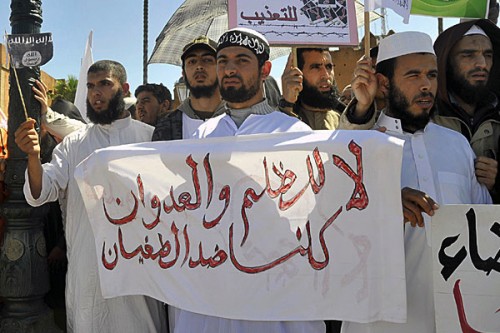 Egypt is preparing for elections for the first time after their civil uprising and Egyptians are now thinking about whom to give the reins of the state in May. Apparently, everything isn’t as smooth as some hopeful presidential candidates will like it to be especially for the Islamists.
Egypt is preparing for elections for the first time after their civil uprising and Egyptians are now thinking about whom to give the reins of the state in May. Apparently, everything isn’t as smooth as some hopeful presidential candidates will like it to be especially for the Islamists.
Recent elections in the Maghreb have given the upper hand to their homologues in Tunisia and Morocco giving an impression of the Islamisation of politics, power and authority after the Arab spring. Hopes are high that the Muslim Brotherhood will emerge as winners but as of now, they have to either defend Mr. Shater or rely on their sole eligible candidate since the former has been barred to stand due to his former criminal conviction. This might open the door to the candidates from other parties to be serious contestants.
It is evident that the military rule will soon come to an end. The question lingering above the May elections is will the Maghreb become a region driven by the Islamists or will Egyptians opt for another choice. Algeria is under the hands of Bouteflika with frequent disturbances from the terrorists groups, Libya is being ruled by a transitional council in which Islamists have a very strong voice. Mauritania has also got its side of terrorist aggressions.
With terrorist groups dispersed in the region and considered as extreme Islamists, these two trends sum up to some interrogations. Are there any links (unofficial of course) between the Islamic political parties and the terrorist groups? Will the arrival of Islamists to power force these extreme groups or push them to abandon their arms? Come May, Egypt will decide.
The Rise Of The Islamists
